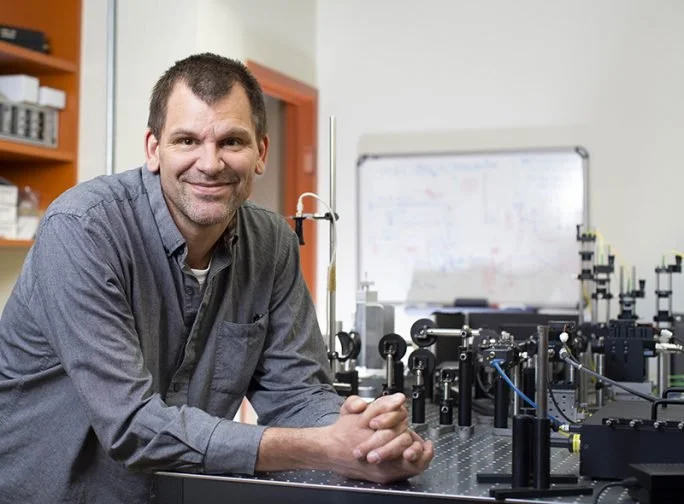Oz Vision: A New Principle for Visual Display
Tuesday, October 28, 2025, 11 a.m.
Bahen Centre for Information Technology, BA 3200
This lecture is open to the public. No registration is required, but space is limited.
Abstract:
Humans have exquisite spatial vision, colour vision, and motion detection despite what appear to be serious limits imposed by a seemingly suboptimal photoreceptor sensor array, an optical system that is fraught with aberrations, and an inability to hold the eye still, even during steady fixation. The Oz vision display can investigate the effects of these limits and overcome them. This is accomplished through a combination of adaptive optics, scanning light imaging and projection, and high-speed eye tracking. Collectively, these technologies enable control of the visual sensory input at the individual photoreceptor level. I will describe two experiments: I will first describe a paradoxical finding whereby the detectability of relative motion is disrupted — a finding that sheds light on the processes underlying our ability to perceive the world as stable despite constant eye motion. For colour vision, I will show how we can directly manipulate sensory input at the cone level to elicit colour experiences — like ‘olo’ — that are outside the human gamut. I will finish with a broader discussion of ongoing and future experiments enabled by the Oz display.
Bio:
Austin Roorda received a joint degree in Ph.D. in Vision Science and Physics from Waterloo in 1996. He has pioneered multiple applications of adaptive optics for the eye, including mapping of the human trichromatic cone mosaic at the University of Rochester (1997-1998), inventing the adaptive optics scanning laser ophthalmoscope (AOSLO) at the University of Houston (1998-2004), and tracking and targeting light delivery to individual cones in the human eye at UC Berkeley (2005-2025), where he was a member of the Vision Science, Bioengineering and Neuroscience programs. He started a new position at the University of Waterloo in July 2025. He is a Fellow of Optica and the Association for Research in Vision and Ophthalmology. Notable awards include the Distinguished Alumni Award from Waterloo, the Glenn Fry Award from the American Academy of Optometry, a Guggenheim Fellowship, a Leverhulme Visiting Professorship (Oxford University) and the Rank Prize in Optoelectronics.

